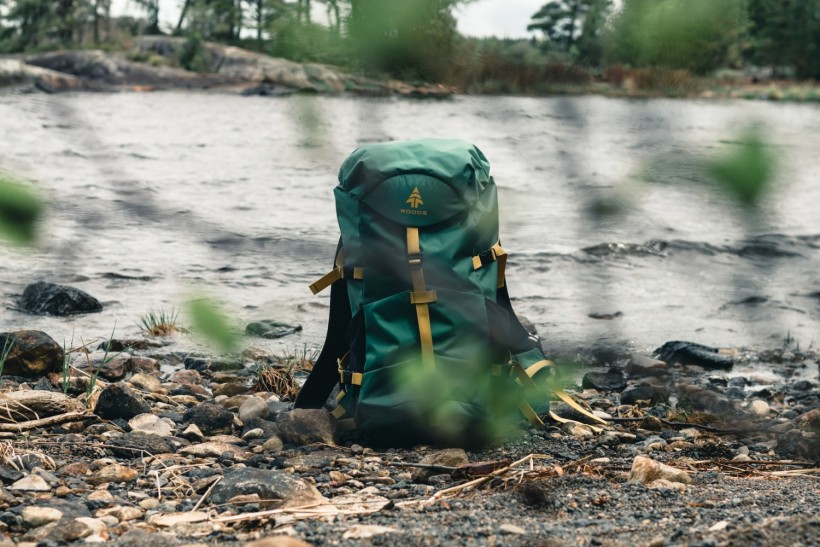Finding the right backpack is simple, especially if you know where to look. Waterproof backpacks are an excellent way to keep everything dry during those rainy days. They're great for hiking, camping, and traveling too. Here are some things you'll want to consider when purchasing your next waterproof backpack:
Identify Your Needs
First off, it's important to know what you're looking for. When you're shopping for a waterproof backpack, you'll want to ask yourself the following questions:
-
What do I need my bag to do? (Specifically, how much storage space am I required to carry?)
-
What do I want my bag to carry? (Are there any special items I'll bring along with me? Think about things like laptops and/or tablets.)
-
How often will I use this pack? (If it's going to be used for hiking or commuting daily, an expensive waterproof backpack may not be worth it-you might find that the cheaper option performs better.)
-
Will this pack be used mainly by myself, or will others also have access?
Choose Your Fabric Carefully
Some fabrics are naturally waterproof, while others must be coated with a polyurethane or polyvinyl chloride (PVC) layer. If you're looking for the most durable material, PVC is your go-to option. But beware: PVC can release harmful chemicals when it breaks down-and unfortunately, it's not uncommon for that to happen over time. You may want to consider avoiding this type of fabric if you plan on using your backpack frequently.
Inexpensive and durable, canvas is a good choice if you want to save money. This material is often made from cotton or linen fibers woven together with jute or hemp threads. It's also available in synthetic blends, which tend to be stronger than pure cotton or linen.
Ensure It's Waterproof, Not Just Water-Resistant
When shopping for a waterproof backpack, it's important to determine if you need a waterproof or water-resistant pack.
Waterproof bags are designed to keep water out, while water-resistant backpacks are designed to keep water in. Waterproof backpacks are more expensive and heavier because they have better construction materials, but they also last longer and don't allow moisture inside their interiors while hiking or camping. Water-resistant backpacks may be lighter than their waterproof counterparts, but they can't be submerged without risking damage.
Find The Right Size & Shape
If you're searching for a new waterproof backpack, the first thing to consider is size. The purpose of a waterproof backpack is to keep your belongings dry in case of rain, so make sure it's big enough to fit everything you need. But don't go overboard: if your bag is too big, it can be difficult to carry or may get in the way while traveling by bike or bus. You also want to ensure it isn't so small that all your stuff gets lost inside; this will take up valuable space and weigh down your back.
Now that we've covered, how big should my waterproof backpack be? Let's talk about shape, specifically what does not work when looking for a great bag. Avoid square bags altogether if you're hiking with friends but don't want them tripping over themselves because they can't see their shoes. Instead, opt for circular ones-they'll give everyone plenty of space without crowding anyone too much at once.
Check For Durability And Resistance To Wear & Tear
Waterproofing is essential for any pack you intend to use in wet conditions. Ask the retailer about the waterproofing capabilities of your backpack, and make sure it will be able to withstand frequent exposure. This will also help you decide whether to get a waterproof liner.
If comfort is important to you, look at how soft and padded the straps are and see if they have an ergonomic design that conforms well to your body type. You can check out this guide for more tips on choosing comfortable backpacks.
Conclusion
We hope this guide has helped you choose the perfect waterproof backpack to suit your needs. Waterproof backpacks are great for traveling, hiking, and more, but we think they're a must-have for everyday life in rainy climates. With so many options available, we recommend trying out different styles at stores or buying them online before deciding which one works for your lifestyle.
© 2024 NatureWorldNews.com All rights reserved. Do not reproduce without permission.
* This is a contributed article and this content does not necessarily represent the views of natureworldnews.com




![Roundworms with Short Memories 'Stop Forgetting' When Frozen or Given Lithium [Study]](https://1471793142.rsc.cdn77.org/data/thumbs/full/70295/280/157/50/40/roundworms-with-short-memories-stop-forgetting-when-frozen-or-given-lithium-study.jpg)

